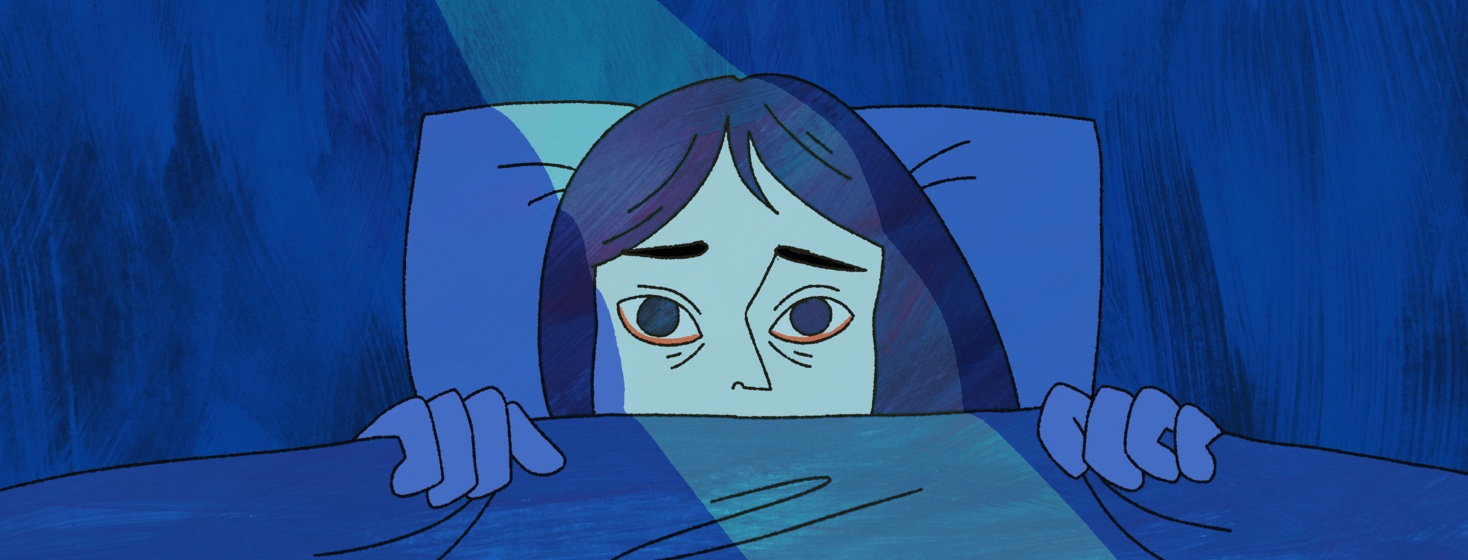How I Manage PMS-Insomnia
I've written about menstrual-related hypersomnia. That's when I sleep a lot more than usual before my period starts. But I actually get pre-menstrual insomnia way more often. I usually struggle to fall asleep at least three to five days before my period starts. And most general sleep hygiene tips don't work for me — it doesn't seem to matter if the room is cold enough or I put away screens an hour before bed.
But over the years, I've come up with a handful of strategies that do work. Here are three things that actually help me snooze.
Melatonin
I have pre-menstrual dysphoric disorder (PMDD). Studies show people with PMDD report all kinds of sleep problems, including insomnia and daytime sleepiness. There's evidence that PMDD messes with our sleep-wake cycle, or circadian rhythm. Research shows people with PMDD make less melatonin during the luteal phase. That's the last two weeks of the menstrual cycle, when my sleep problems get worse.1,2
Without enough melatonin, you don't get the signal that it's time to sleep. That feels like what happens to me. Though, I can't be certain that's what's going on.
This supplement may not work for everyone. But my main issue is falling asleep. That's what sleep experts tell me melatonin is best for. Your dose and timing might vary from mine. But I take 1.5 milligrams (mg) — a 3-mg pill cut in half — about 20 minutes before I want to fall asleep. That usually helps me conk out.
I never double the dose. Too much melatonin makes me groggy in the morning. Lots of sleep doctors have told me to keep it within the 1-to-3-mg range. They say there's no evidence that megadoses, such as those 10-mg pills I see at Target, are more effective.
The FDA doesn't regulate supplements. I know I can't be sure about what I'm getting. But I buy brands with the USP label. That's a kind of quality control that means the label should be telling the truth. This probably goes without saying, but talk to your doctor if you want to try melatonin. They'll let you know if it'll interfere with any of the medications you're on.
Exercise
Believe me, I know that endo causes serious fatigue. Sometimes I get so tired that I fall asleep in the middle of the afternoon. But a lack of movement during the day seems only to worsen my insomnia at night. And that lack of sleep piles on top of my daytime fatigue. It's a vicious cycle.
But there's pretty strong evidence that physical activity can improve sleep. That link is even more robust for people middle-aged or older — and I just turned 40!3
It's not that I have work out like crazy. It's more that physical activity becomes non-negotiable. I have to get at least 30 minutes of structured movement a day. But if I've got the energy, I try for an hour or more of some kind of cardio, strength-training, or a mix of both.
Here are the kinds of physical activity that help me feel tired at night:
- Jogging at least 3 miles outside or on the treadmill
- An hour of heavy gardening or pushing the lawn mower
- 30 minutes of High-Intensity Interval-Training (HIIT)
- 30 to 45 minutes of yoga or weight-training
- A 5-to-8 mile hike in the mountains
I don't get to do that last one very often, since I live in the Midwest.
I've written in the past about how running made my endo symptoms worse. But I had excision surgery earlier this year. My doctor removed lots of scar tissue and some endo. I no longer have problems exercising, including going for a run.
A weighted blanket
My central nervous system gets pretty tuned up at certain points in my cycle. One sleep specialist told me I probably also have a low auditory threshold. That just means it doesn't take much noise to wake me up.
But I wake up less often when I sleep under my 20-lb cover.
Again, this method might not work for everyone. But studies show weighted blankets can help lower anxiety in some people. They're often used as an emotion regulation tool for people with autism. But the jury is still out on whether, in general, they can really help with insomnia.4
What to do if you can't sleep
Talk to your doctor. You might benefit from cognitive behavior therapy for insomnia (CBT-i). They can also set you up with a sleep specialist if they think you need one.
If you have tips on how to get good sleep, let us know!

Join the conversation